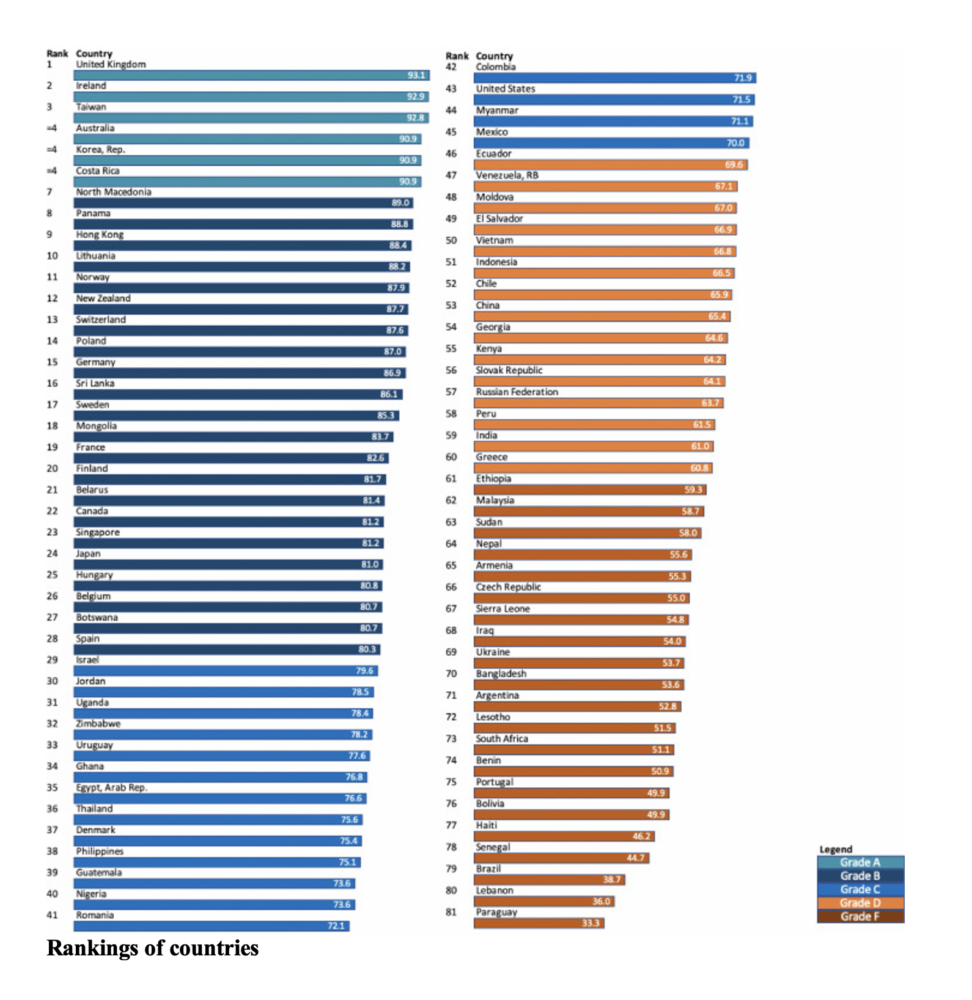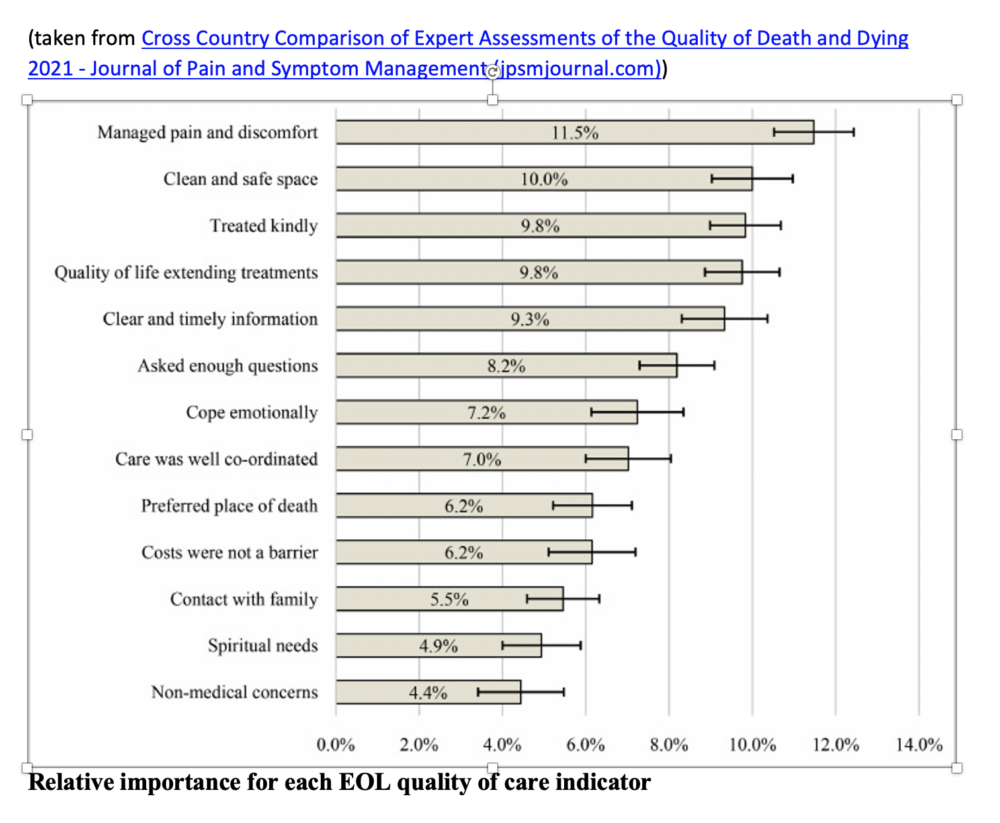Here’s some good news for Australians!
Australia comes fourth in a ranking of end-of-life care, in a new assessment and comparison of 81 countries by The Lien Centre for Palliative Care at Duke-NUS Medical School.
The report, Cross Country Comparison of Expert Assessments of the Quality of Death and Dying 2021, said the six best scoring countries were The United Kingdom, Ireland, Taiwan, Australia, Korea and Costa Rica.
Costa Rica was the only non-high-income country in this category and it was not until Uganda (ranked 31st) that a low-income country appeared on the ranking. Twenty-one countries received a failing grade, and two of these: The Czech Republic (66th) and Portugal (75th) were high income countries.
The findings of the study were recently released and revealed great disparities in the quality of end-of-life care, particularly, but not only limited to, differences between high- and low-income countries.

Sadly, it also revealed that globally most people:
- die in pain and after experiencing serious health and or psychological related suffering
- not at their place of choice,
- often having expressed regret about the last period of their life, prior to dying.
The findings indicated that many patients also undergo expensive or marginal treatments that might actually worsen their end-of-life experience and as a result, medical bankruptcy and regret is common both in high- and low-income countries.
The study employed a unique approach, basing ranking on key indicators of quality care developed through a literature review and interviews and then applying importance weights that measured and factored in the relative importance of each indicator.
So unlike previous studies which have attempted to standardise across countries by choosing prior indicators based on data availability, this study was able to pick up key concerns previously missed.
These included dying at a place of choice and having access to friends and family, a significant issue in the context of COVID-19 care, which could matter much more to patients than minor increases in life extension and even pain management. (See a more comprehensive list of what was measured below.)
Offering some hope, the study indicated that greater integration of palliative care into the community and more broadly within the healthcare system can have far-reaching effects on improving end-of-life care for all, particularly from an equity perspective.
Despite our high ranking, the findings offer a strong basis for changes and improvement in palliative care delivery – even within Australia, where the delivery of good end-of-life care is extremely patchy.
The Lien study hopes to motivate policymakers, service providers and stakeholders in all countries to improve end-of-life care through policy change, increased resources, implementation and evaluation.

Resources
To read the full study go to: Cross Country Comparison of Expert Assessments of the Quality of Death and Dying 2021.
To read Good Grief’s articles to help you understand palliative care, go to our Resource Hub and follow the links. Our articles all have links to further resources.
Do you need something to help you look at the big picture issues, before you reach end-of-life? Read A Good Death: a compassionate and practical guide to prepare for the end of life.
